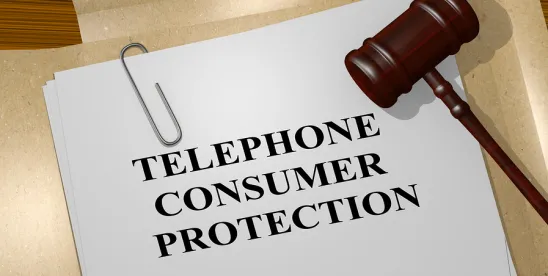The answer is no.
The question: Does the Czar ever get tired of being right?
No. No I don’t.
The other question: Can you obtain TCPA permissible express written consent via a disclosure read on a recorded call?
No. No you cannot.
The reason? The underlying agreement the consumer is accepting must be in the form of a written disclosure. Period. Full stop.
The signature can be captured orally. But the agreement must be in writing.
This seems straightforward–but it is actually really tough to glean from the regs– and many lawyers (some pretty good ones) have been wrong about this.
It has lead to a massive state of confusion in the lead gen industry with many companies swearing they can do what they simply cannot do.
And with the FCC’s new one-to-one rules coming into place (and R.E.A.C.H. Standards v. 2.0 out in July) clarity on this subject is absolutely critical. And yet there was –oddly–very little case law on this subject.
Enter the federal district court in Maryland.
In a new and very thoughtful decision, the court in Bradley v. Dentalplans.com, 2024 WL 2865075 (D. Md. June 6, 2024) walks through the applicable regs–which the court calls “complex” four different times–and arrives at the unsurprising conclusion that the Czar was right.
Here’s the background:
DentalPlans operates a “direct-to-consumer marketplace” that sells “dental savings plans” that allow customers to receive discounts on dental treatments. At least one of these dental savings plans is provided by Cigna.
Plaintiff placed a call to DentalPlans in November 2018, intending to sign up for a dental savings plan. The representative to whom Plaintiff spoke confirmed Plaintiff’s phone number and then asked Plaintiff if she consented to DentalPlans “contact[ing] [her] with an automatic dialing system or a prerecorded message.”
The representative to whom Plaintiff spoke during this initial sign-up process utilized a sales script during the call. The script calls for DentalPlans’s agents to (1) “collect[ ] the consumer’s name and telephone number,”; then (2) ask if the caller would “like to receive plan updates and promotions via text message”; before (3) asking for the caller’s consent to “contact [them] using an[ ] automated telephonic dialing system and/or prerecorded message”; and finally, (4) informing the caller that they “are not required to agree as a condition of purchasing any products and or services.” This script is used by DentalPlans for all incoming calls from non-customers, though the actual conversations vary naturally depending on the caller’s response.
Plaintiff agreed to receive the calls as described by the representative. Plaintiff proceeded to successfully sign up for a Cigna dental discount plan through DentalPlans during the phone call.
After the plan expired DentalPlans called the consumer using prerecorded calls to try to “winback” the consumer. Plaintiff sued under the TCPA for the calls arguing she did not consent.
So there is your scenario. Pristene and perfect.
The TCPA’s required PEWC language is all in the script. But the script was read over the phone in a recorded call. Is it valid consent to permit DentalPlans to make the calls it later made?
Nope.
The court goes through a very thorough and lengthy analysis that I won’t recite because its dull and, with love, you probably wouldn’t get it anyway. It is a rather complex legal analysis but the court’s final conclusion is simple and CRITICAL for everyone to understand:
“[T]he required written disclosures outlined in § 64.1200(f)(9)(i) of the TCPA cannot be provided via voice recording. Because these disclosures were not adequately provided, the voice recording cannot constitute a valid written signature.”
The end.




 />i
/>i
